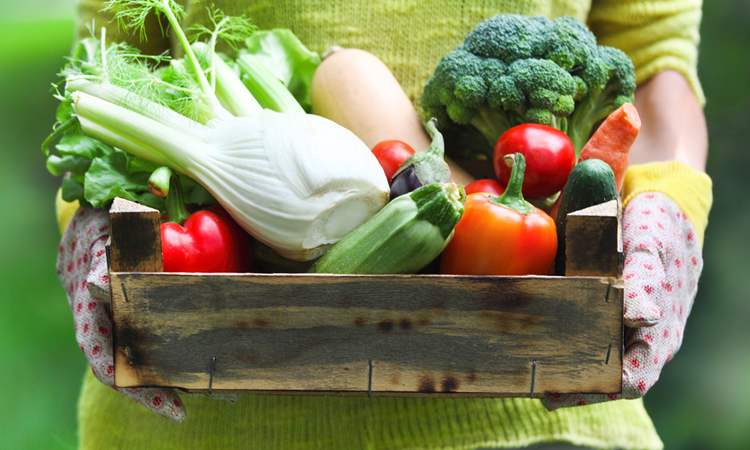What do you think of when you hear the phrase “Mindful Eating?” For most, it likely means to slow down around meals and snacks, sit while you eat, chew your food more thoroughly, drink water…and don’t forget to breathe while you’re at it!
While I subscribe to that kind of mindful eating (and like to think that I achieve it 85-90 percent of the time—hey, I work full time and have two very active boys), it goes way beyond that for me.
About thirty years ago my food skeptic was born. It all started with a personal illness and trying to find an alternative “medicine” to the multiple drugs the doctors dosed me on. I feverishly read food labels. Then questioned all that mumbo jumbo on those ingredient lists as well as the ridiculous health claims on the highly processed noshes. From there it morphed into wanting to understand how food was grown and how animals were raised. As I aimed to navigate food choice to improve my health, I learned about a food producing and processing industry that, in the end, cared very little about health.
Because of this, eating mindfully took on a bit of a different spin in my world. Now it looks something like this (in a nutshell):
1. If buying plant food, know where it comes from, as in is it local or not so local? I believe that supporting the local farmer is central to strengthening local economies.
2. Aim for organics as often as possible. While I’m not able to eat organic 100% of the time, I refer to the Environmental Working Group’s Dirty Dozen and Clean Fifteen to guide me on which fruits and vegetables are the safest to choose or avoid when buying non-organic produce.
3. For anything edible on the animal front, high humane welfare is my number one. You are not only what you eat, but you are also what they ate (and how they were treated). Since 97 percent of the animals raised for food are from intensive industrialized farming operations, and there are few (if any) labels on animal foods that you can trust nowadays (the U.S. government is really lax here), I seek meats that are verified by a third party such as:
- Animal Welfare Approved (my number one and Consumer Reports’)
- Certified Humane
- USDA Organic
- Certified Naturally Grown
4. For dairy, I accept nothing other than USDA Organic with the understanding that even the National Organic Program doesn’t have the highest humane welfare standards. Organic versions of many cheeses are hard to come by, so I pick what I like, however, it must be real cheese rather than processed cheese food.
5. For fish, I live in a coastal community so I essentially buy from my local fishermen. If that is not an option for you, best to use Monterey Bay Aquarium’s Seafood Watch to help point you towards the healthiest and most sustainable choices.
6. And for packaged food, I avoid eats with the following “Top Rated Terminators” at all costs: Chemical preservatives; artificial flavors and enhancers; artificial colors; artificial sweeteners; too much sugar (and its many euphemisms); trans fats (hydrogenated oils); and genetically modified organisms. I aim for items that have 5-7 ingredients (or less) and if there is something that stumps me, I use Environmental Working Group’s Food Scores Database to offer guidance. Also, any food with too many claims is a dead giveaway for a phony so I steer clear.
I realize that this may be a lot to swallow, but think about it this way. If you need a car, a mindful purchase is a must. Hey, cars aren’t cheap. You talk to friends and family, research on line, and visit car dealers to chat with a salesperson and test-drive your potential purchase. In fact, the average person shopping for a car spends eleven hours researching on line and roughly four hours going to and from dealerships. What I find incredibly fascinating is that very few people put a fraction of that time into thinking about the food they purchase and eat. And food choice (not a car) is central to health!
Click here to find out about Rose’s thoughts on wellbeing and health




1 Comment
Riz Ray
Hi, Even though it looks pretty challenging the steps given are pretty simple and doable. I really like the phrase, “You are not only what you eat, but you are also what they ate”.
Cheers
Riz